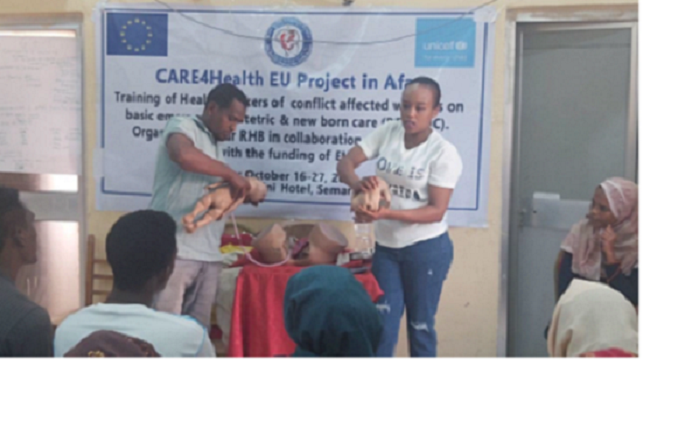Building Capacities and Restoring Essential Health Services (CARE4Health) in conflict affected areas

Introduction:
|
Multiple humanitarian situations in Ethiopia including conflicts, drought, and public health emergencies/outbreaks have affected access to essential health services in most parts of the country. The northern conflict and the ongoing war in Amhara region have caused severe damage to important health infrastructure, and rendered non-functional in some facilities, thereby hindering the provision of health services. It has also led to loss of livelihoods as well as psychological distress and sexual abuse of women and girls. In response to this situation, the EU together with UNICEF, developed CARE4Health project for a comprehensive health system strengthening, focusing on Primary Health Care Unit, targeting both supply and demand-side interventions in selected zones and districts of the conflict affected regions (Afar, Amhara and Tigray), and in selected poorly performing zones and woredas of Oromia and South Ethiopia regions. The Action supports the rehabilitation of health infrastructure and re-stocks medical equipment and supplies, looted during conflicts. It has a specific focus on maternal, child and adolescent health services. It also ensures that the poorest of the poor have access to health insurance schemes. The Action contributes to build the health system back better. Objectives:The overall objective of the project is to contribute to improved health and well-being of women, children and adolescents in Ethiopia through the provision of equitable and quality health services. More specifically the project:
Project Activities:
Expected Results:
|





